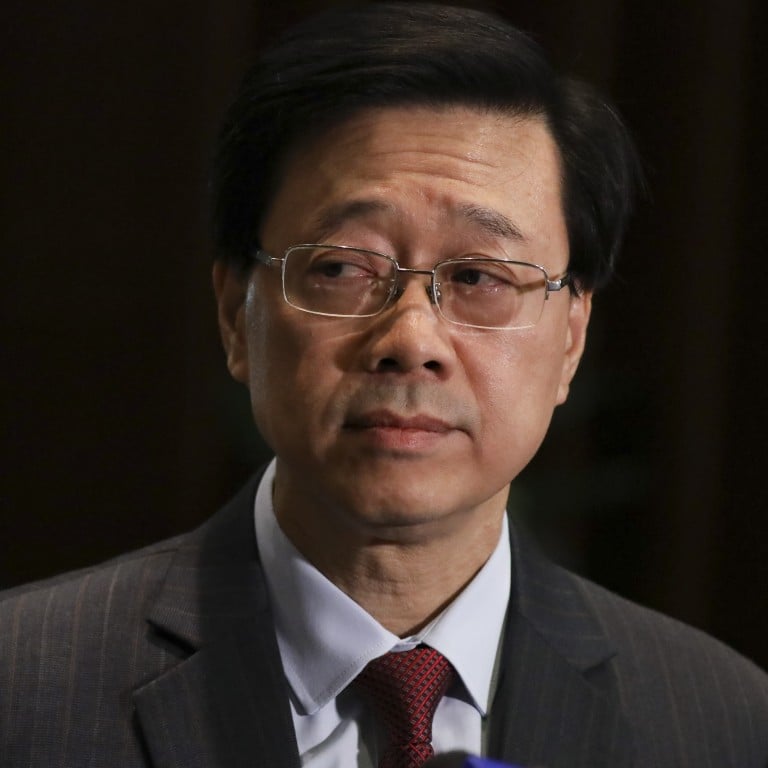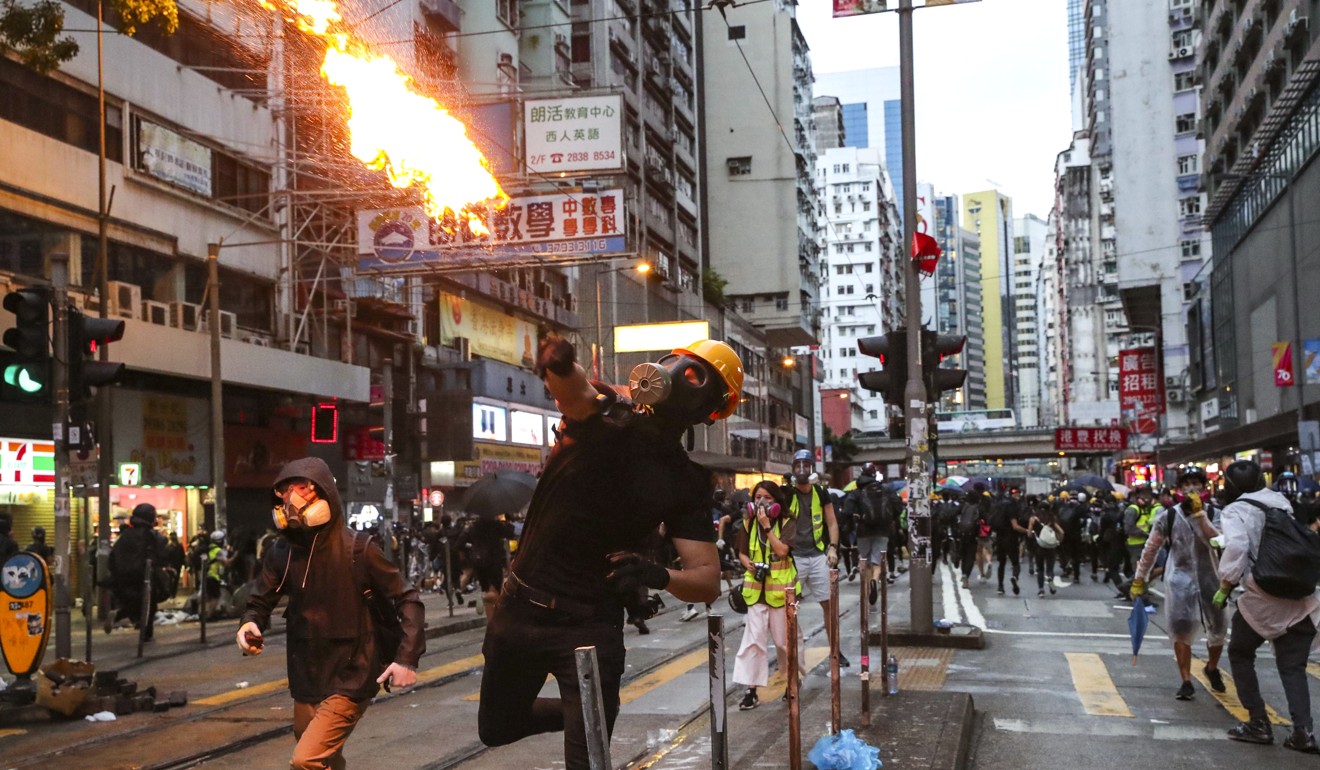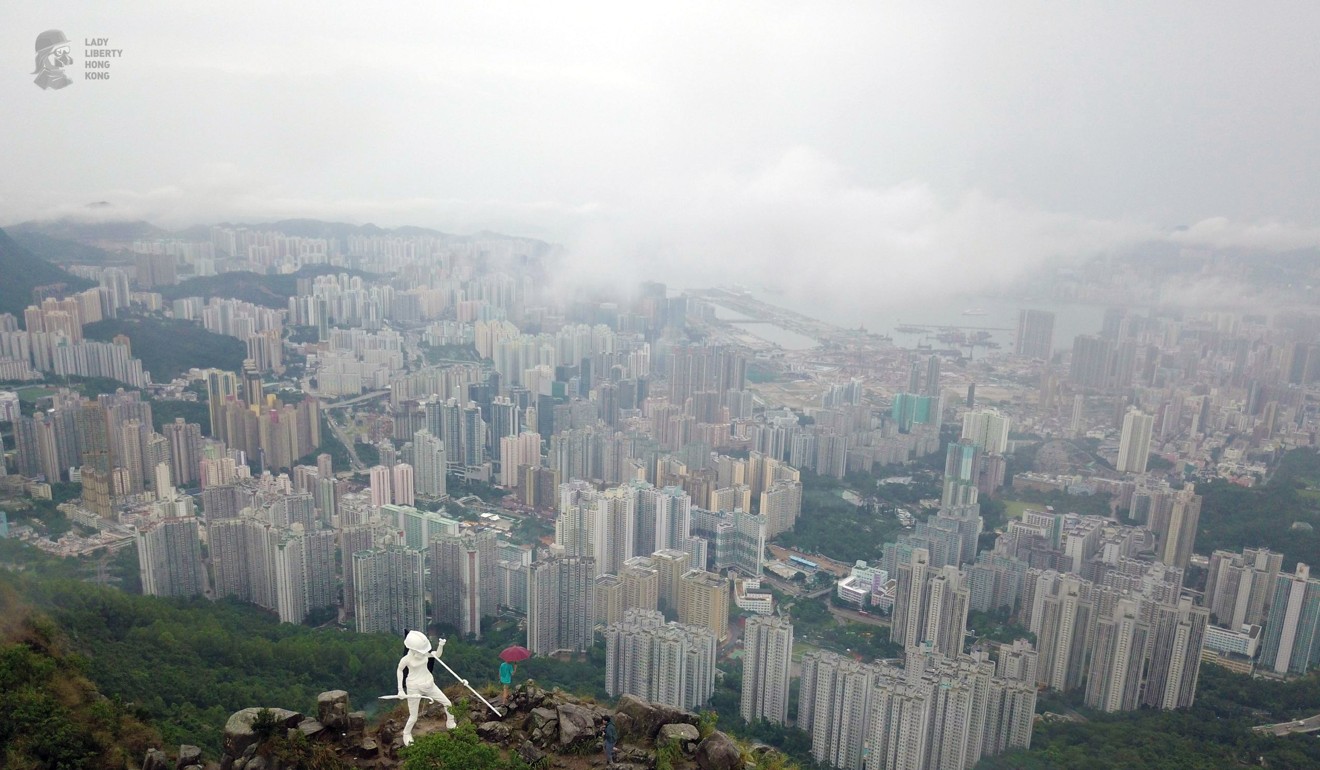
Hong Kong security chief John Lee refuses to step down over government’s failure to quell protests
- Senior official vows to ‘fulfil my duty’ to tackle the violence ravaging the city
- Lee defends police ‘caught in the crossfire’, with demonstrations showing little sign of abating
Hong Kong’s security chief has said the government cannot escape responsibility for the protest crisis, but he refused to step down over its failure to stem the violence plaguing the city.
In an interview with TVB on Sunday, Secretary for Security John Lee Ka-chiu said he would stay on to bring an end to the large-scale unrest, which has reached new heights since the anti-mask law came into force.

“For the current social and political problems, of course the government has an unshakeable responsibility,” he said.
Asked if he would resign over the crisis, he said: “As an official, at present the most important responsibility for me is to curb the serious violence in Hong Kong … I have emphasised many times that I’ll continue to stay on to fulfil my duty.”
Lee’s remarks came as the protests showed little sign of easing, with the introduction of the mask ban under emergency legislation last weekend leading to another wave of vandalism and clashes.
Earlier in the day, protesters scaled the city’s Lion Rock peak and hoisted a large statue called “Lady Liberty”.
The 4½-metre statue, which weighs 80kg and is adorned with protest accessories such a gas mask, was carried up the 500-metre peak during an overnight thunderstorm by several dozen demonstrators, some wearing head lamps.

It bore a black banner that read “Liberate Hong Kong; revolution of our times”, a popular slogan for the movement, and could be seen from the city below.
Criticism of police’s use of force against protesters is one of several demands from anti-government activists.
Among widespread complaints about police’s handling of the demonstrations, the Hong Kong Journalists Association has condemned what it called the “indiscriminate” use of force by officers against reporters.
Banks implement staff contingency plans as protests rage
Indonesian journalist Veby Mega Indah, a 39-year-old associate editor with Suara Hong Kong News, was hit by what her lawyer believed to be a rubber bullet when she was covering the city’s ongoing unrest on September 29 clothed in full press gear.
However, Lee strongly defended the force, saying it had been caught in the middle and was bearing the brunt of the public’s mounting discontent.
“I entirely agree that we shouldn’t rely on the police for resolving the current problems. But at this stage we need police to contain the violence,” he said.
Lee pointed out the ongoing political conflict had caused serious rifts in society, with two opposing forces.
“The police force is being caught in the crossfire and become the centre of attention,” he said.
“I understand that in an environment fraught with political strife, people would be unhappy about certain law enforcement actions by police. But they are only maintaining law and order.”
Bar Association vice-chairman quits over body’s stance on protest crisis
Lee also questioned why society had focused on the use of force by police, but failed to raise concerns about rampaging violence by radical protesters, who have vandalised public facilities such as MTR stations and even attacked those holding opposing views to them.
“The rioters have created all these social problems, leading to police’s use of force against them. I wonder why nobody raises this cause and effect issue?” he asked.
Separately, Secretary for Justice Teresa Cheng Yeuk-wah has tried to reassure people the new anti-mask law would not have much of an impact on their daily lives.
“If a member of the public in a public place is asked by police officers to remove the face covering to verify his identity, he may wear it again after the verification process is completed,” she wrote on her official blog on Sunday.
“Interference with a person’s rights is minimal, and in any event proportionate to the legitimate aim of protecting public safety and public order … Other than the specified circumstances set out in the new regulation, people are generally free to wear face masks and the impact on their daily lives is limited,” she assured.
As Hong Kong leader rolls out mask law, city burns during night of violence
The specified circumstances, she explained, included unlawful and unauthorised assemblies, as well as public meetings or processions with police approval.
However, she emphasised that police also had the power to require a person to remove a facial covering in a public place to verify his or her identity.

